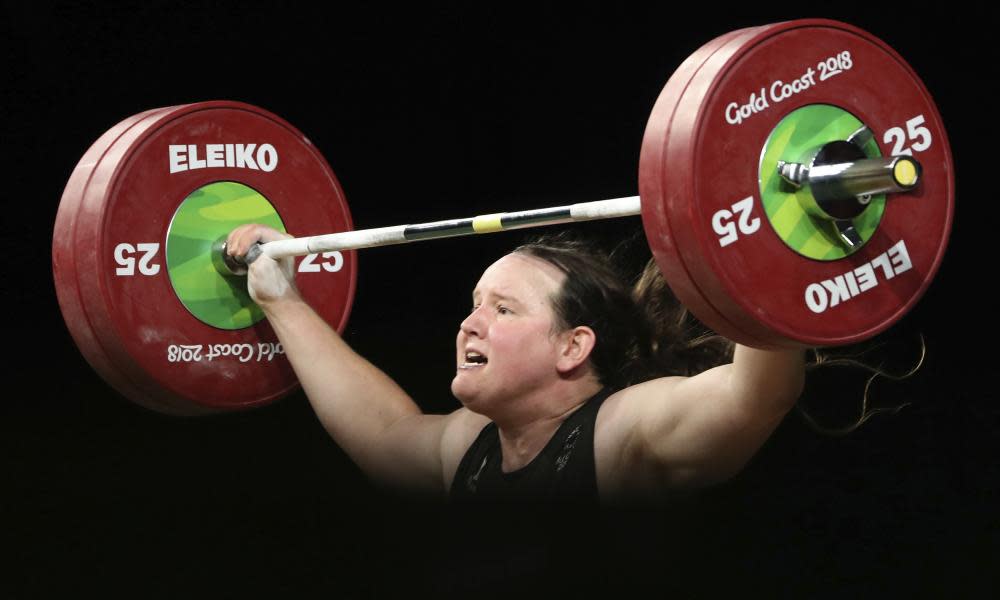IOC praises weightlifter Laurel Hubbard before transgender athlete’s Olympic debut

The International Olympic Committee has praised the weightlifter Laurel Hubbard’s “courage and tenacity” as she prepares to become the first transgender athlete to compete in an Olympics on Monday. The IOC’s medical and science director, Dr Richard Budgett, said “everyone agrees that trans women are women”.
Hubbard’s participation in Tokyo has proved controversial with her supporters hailing it as a historic moment for trans rights with the IOC’s critics believing that the 42-year-old New Zealander, who had never competed internationally until transitioning at 35, has an unfair and substantial advantage.
Related: Tokyo 2020 Olympics: Jess Fox pips GB’s Franklin to canoeing gold – live!
Budgett accepted that the issue was “large, difficult and complex”, but backed Hubbard’s right to compete.“To put it in a nutshell, the IOC had a scientific consensus back in 2015,” he said. “There are no IOC rules or regulations around transgender participation. That depends on each international federation. So Laurel Hubbard is a woman, is competing under the rules of her federationand we have to pay tribute to her courage and tenacity in actually competing and qualifying for the Games.”
While Budgett appeared to accept Hubbard had an advantage from going through male puberty, he stressed that inclusivity was an important factor too. “There are lots of aspects of physiology and anatomy, and the mental side, that contribute to an elite performance,. It’s very difficult to say, ‘yes, she has an advantage because she went through male puberty,’ when there’s so many other factors to take into account,” he said.
“It’s not simple. Each sport has to make their own assessment depending on the physiology of that sport, so that they can ensure there is fair competition, but also the inclusion of everyone – whether they’re male or female – so they are able to take part in the sport they love.”
As first revealed in the Guardian, the IOC has delayed updating its 2015 guidelines because finding a consensus has proved so difficult. But, as things stand, they state that trans women can compete in the women’s category without gender reassignment surgery as long as they keep their total testosterone level in serum below 10 nanomoles per litre.
Those guidelines have been challenged on multiple fronts, with critics noting the vast majority of females, including elite athletes, have a testosterone range of 0.12-1.78 nmol/L.
Recent scientific papers have also shown that anyone who undergoes male puberty retains significant advantages in power and strength even after taking medication to suppress their testosterone levels.
“There is a lot of disagreement across the whole world of sport and beyond on this issue of eligibility,” said Budgett. “Everyone agrees transgender women are women. But it’s a matter of eligibility for sport, and particular events, and it really has to be very sport-specific.
“One of the reasons there is no new framework published yet is not just because of the difficulty in coming to any consensus. It’s because it would have been inappropriate to come out with new guidelines just before the Olympics. There will be a new framework to help individual sports and we’re working very closely with them, but it’s not published yet.”

 Yahoo Movies
Yahoo Movies 
